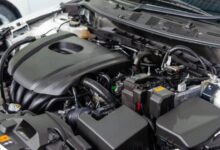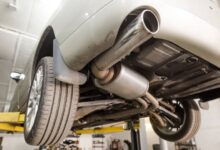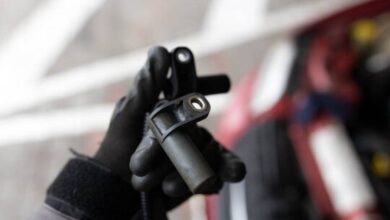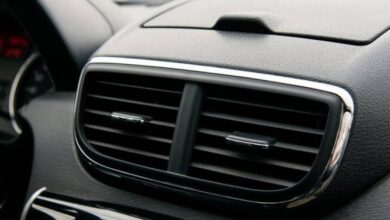How Much Does It Cost To Swap An Engine?
Last Updated on May 29, 2023 by Thomas James
Do you have an older car that you no longer want to drive, but doesn’t have any engine problems? Swap its engine with a newer one and you can get a new car without spending a lot of money. There are many reputable companies that will do this for you, and the process is usually fairly easy.
Swapping out an engine in a car is a common repair, and it can be done relatively cheaply. There are a few things to keep in mind when doing this: the engine must be the same make and model as the one that’s being replaced, the car’s wiring must be compatible with the new engine, and the car must have enough room to do the swap.

How Much Does It Cost To Swap An Engine?
If you’re considering swapping out your engine, there are a few key factors to consider in order to estimate the cost.
The price of a new engine depends on the make and model of your car, while the cost of installation will vary depending on your mechanic’s rates and the complexity of the job. Other factors that can affect the total cost include replacing any worn-out parts or upgrading your exhaust system.
By taking all of these into account, you can get a fairly accurate estimate of how much it will cost to swap out your engine.
When it comes to car repairs, there are a lot of things that go into the final price. One of the main factors is the cost of the parts. But there are other factors as well, including the transmission and other parts, the labor, and what kinds of tools you may need.
You may also like: How To Destroy An Engine Without Evidence?
If you trade in your vehicle’s engine and have it replaced, the labor to stock it will likely be more affordable compared to if you kept it in respectable condition and never had to replace the engine. If you don’t have much money, the engine alone can cost anywhere from $10,000 to $20,000.
Cost Of Engine Replacement
Replacing an engine can be a costly endeavor, no matter how old the car is. The cost of parts, labor, and licensing can add up quickly.
And then there’s the added expense of replacing an engine in a classic car, which may be significantly more than for a newer model. It’s important to know your options before making a decision about whether to replace an engine. It may take from 50K-500K. It’s also important to understand what you can expect with a replacement engine.
Replacement Transmission
It ranges from $250 – $3,000. If you’re driving a car with a standard transmission, you may not need to replace the transmission when the engine dies.
Depending on the engine, you may be able to replace just the engine or just the transmission. If you have an automatic transmission, however, you will almost certainly need to replace the entire vehicle. While a stock transmission might be fine for everyday driving, it won’t hold up under the demands of a more powerful engine.
A performance transmission will provide you with better acceleration and handling, as well as increased durability.
Cost of Swap Kit
Finding car parts can be a difficult task, especially if you need something specific. One option is to find the parts you need one by one.
Not only is this a time-consuming process, but it can also be expensive. A better option is to use an online car parts finder. This service allows you to search for the part you need and then buy it directly from the website. This process is much faster and more affordable than buying parts from a junkyard.
The cost of a swap kit for an engine can vary depending on the make and model of the engine. A swap kit will typically include a new engine, mounting brackets, bolts, and screws.
The engine will also have to be shipped from the dealer or a local parts supplier. The swap kit for an engine is usually around $1,200.
The cost of a swap kit for a transmission can vary depending on the make and model of the transmission.
Other Expenditures
$100 – $6,000+; Other expenses of the engine may include: shipping and handling, tax, registration, emissions testing, insurance, and depreciation.
All of these costs can add up quickly and can significantly reduce the effective value of an engine. When calculating the true cost of ownership, be sure to take all these expenses into account.
When most people think about their car, the first things that come to mind are the engine and transmission. These components power and control your car’s movement, so they understandably get a lot of attention.
However, there are many other vehicle components that interact with your drivetrain and must be properly maintained in order to keep your car running smoothly.
One such component is the differential. This part helps to distribute power evenly between the two wheels of a vehicle, allowing them to move at different speeds when turning.
The differential also helps to keep the wheels from skidding when braking or accelerating on surfaces with different levels of traction.
If you have your engine swapped out at a car repair center, you should plan to spend around $2,000 for technician labor. Most mechanics charge nearly $85 to $125 an hour for labor.
Changing out an engine is a large undertaking, and many car mechanics charge between $20 and $80 per hour for it to be done.
However, rebuilding an engine will cost roughly between $2,500 and $4,000. In some cases, this will be the best option to give you a like-new motor at a potentially lower cost than to replace it with a new one. However, if there is extensive damage, the price may grow significantly.
Conclusion
In conclusion, In conclusion, swapping the engine is a great way to improve the performance of your car. It can give you more power and better gas mileage.
If you are thinking about doing this project yourself, be sure to do your research and take your time. It’s a big job and it’s not something that can be done in a day.
It is important to factor in the cost of engine swaps when making a decision about repairing or replacing a car. The cost of the swap itself, as well as any additional repairs that may be necessary, can add up quickly. It is important to do your research and compare prices before making a decision.










